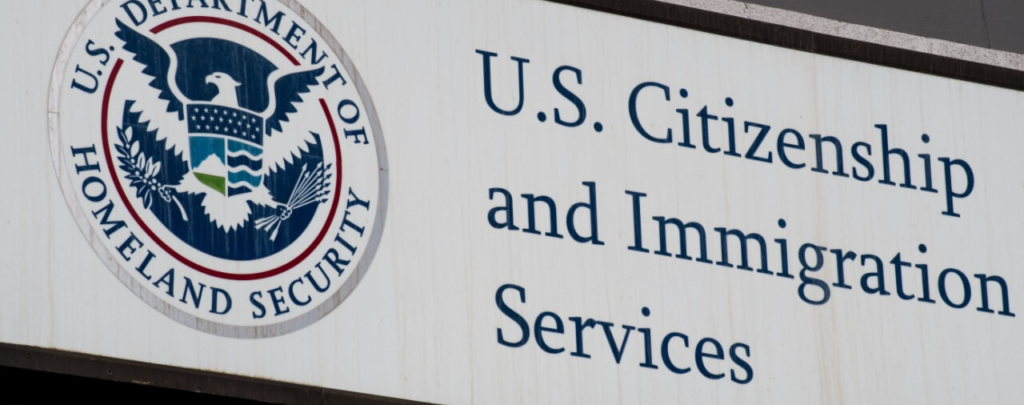The Board of Immigration Appeals (BIA) recently limited the availability of the INA§212(h) waiver to lawful permanent residents who have been convicted of aggravated felonies. The Courts of Appeals for the Fourth, Fifth, and Eleventh Circuits have previously held an aggravated felony conviction disqualifies an alien from a waiver under INA §212(h) only if the conviction occurred after the alien was admitted to the United States as a lawful permanent resident following inspection at a port of entry. See Bracamontes v. Holder, 2012 WL 1037479 (4th Cir. 2012); Martinez v. Mukasey, 519 F.3d 532 (5th Cir. 2008); and Lanier v. U.S. Attorney General, 631 F.3d 1363 (11th Cir. 2011). In Martinez, the Court of Appeals for the Fifth Circuit held
the statutory phrase “an alien who has previously been admitted for permanent residence” was unambiguous and referred exclusively to individuals who had lawfully entered the United States as permanent residents after inspection at a port of entry, not to aliens who had acquired lawful permanent residence through adjustment of status within the United States after entry.
Matter of E.W. Rodriguez, 25 I&N Dec. 784, 786 (BIA 2012) citing Martinez, 519 F.3d at 524-526. The Court of Appeals for the Fifth Circuit based this conclusion on a finding that “for aliens who adjust post-entry to LPR status, § 212(h)’s plain language demonstrates unambiguously Congress’ intent not to bar them from seeking a waiver of inadmissibility.” Martinez, 519 F.3d at 546.
However, the BIA declined to apply the holdings of the Courts of Appeals for the Fourth, Fifth, and Eleventh Circuits in removal “proceedings arising elsewhere.” Matter of E.W. Rodriguez, 25 I&N Dec. at 789. Rather, the BIA held “[w]e respectfully disagree with the Martinez court’s interpretation of the statute, but are not free to construe the statute differently in Fifth Circuit cases because the Martinez court found the language of section 212(h) to be unambiguous.” Id. at 788. The BIA further held as the Courts of Appeals for the Fourth and Eleventh Circuits “also found section 212(h) to be unambiguous, we likewise conclude that those decisions are binding precedent in removal proceedings arising within the Fourth and Eleventh Circuits[.]” Id.
The BIA declined to follow the precedent established by the Courts of Appeals for the Fourth, Fifth, and Eleventh Circuits concluding “that the language of section 212(h) is ambiguous when understood in context of the statute taken as a whole.” Id. at 789. The BIA relied upon its prior decision in the Matter of Koljenovic, 25 I&N Dec. 219 (BIA 2010), and held “the proper solution of that ambiguity is to interpret the statute as barring relief for any alien who has been convicted of an aggravated felony after acquiring lawful permanent residence status, without regard to the manner in which such status was acquired.” Id. The rationale was that “the statutory terms ‘admitted’ and ‘admission’ should be construed to include a grant of adjustment of status.” Id. Although the BIA “acknowledged that adjustment of status does not fit within the statutory definition of the term ‘admission’ set forth at section 101(a)(13)(A) of the Act, [it further stated] we have nevertheless been constrained to treat adjustment as an admission in order to preserve the coherence of the statutory scheme and avoid absurdities.” Id.
This decision has deprived lawful permanent residents who have been convicted of aggravated felonies of a valuable form of relief from removal. The hope for those lawful permanent residents who have been convicted of aggravated felonies who are not within the jurisdiction of the Courts of Appeals for the Fourth, Fifth, and Eleventh Circuits is to have the BIA’s decisions in the Matter of E.W. Rodriguez, supra. and the Matter of Koljenovic, supra. overturned. This can only be achieved by challenging the ruling in other Courts of Appeals. If you are lawful permanent resident who has been convicted of an aggravated felony and are in removal proceedings, or are seeking appellate review, it is important to retain experienced counsel to represent you. You may be able to successfully argue the BIA’s decisions in the Matter of E.W. Rodriguez, supra. and the Matter of Koljenovic, supra. found an ambiguity in the law that in reality does not exist and thus, should be overturned.





